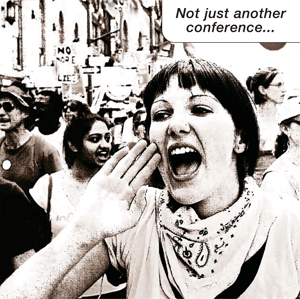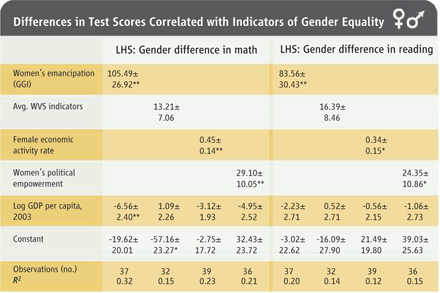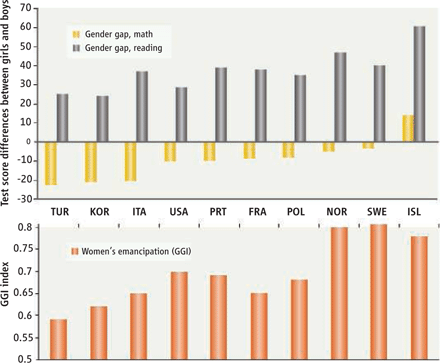Easter 2009 an All-European Autonomous Feminist Womyn’s Gathering will take place in Vienna, Austria. We invite you to participate with workshops, actions and more.
Find details online on http://feministgathering.wolfsmutter.com
We are looking forward to your suggestions and ask for forwarding this invitation to interested women. Thanks.
feminist greetings from Vienna
the organizers
—
************************************
Autonomous Feminist Womyn’s Gathering
April 9 – 14, 2009 – Vienna, Austria
http://feministgathering.wolfsmutter.com
************************************
Category Archives: english
Compensation Now: Campaign on Coerced Sterilisation
Romani Women Campaign around Forced Sterilisation Practices at the 2008 Women’s Worlds Congress in Spain
http://www.errc.org/cikk.php?cikk=2965
Information also in česky, español, magyarul.
3 July 2008, Budapest, Madrid, Ostrava, Prague: Today, a coalition comprised of the Ostrava-based Group of Women Harmed by Sterilisation, the European Roma Rights Centre (ERRC) and the Peacework Development Fund launch a global campaign seeking support for Romani women victimised by coerced sterilisation practices in Czech Republic, Hungary and Slovakia.
Continue reading
Invitation to 2008 AWID Forum
 The 11th AWID International Forum on Women’s Rights and Development
The 11th AWID International Forum on Women’s Rights and Development
www.awid.org/forum08

The Power of Movements
November 14-17, 2008
Cape Town, South Africa
The struggle for women’s rights continues to face formidable challenges.
Fundamentalist forces have gained ground around the world, exerting an increased control on women’s lives. The Millennium Development Goals alongside the new aid architecture have restructured development assistance with women’s rights taking a back seat. The HIV and AIDS pandemic has continued to spread, with women being disproportionately affected. Migration has become an increasingly feminized phenomenon, particularly in relation to issues of labour and sexual exploitation. Militarization has increased, with particularly devastating impacts on women, while at the same time “security” agendas have obscured global strategies for human development and the eradication of poverty. Continue reading
Feminist Midwifery Zine call out
A feminist midwifery ‘zine’:
Is midwifery a feminist issue? How do feminists practice midwifery? What are feminists currently thinking about childbearing? What do feminists think about midwives?
This is a ‘call out’ to feminists who would like to contribute to an upcoming ‘zine’ about feminism, midwifery, pregnancy and birthing. A ‘zine’ is an informally published / DIY magazine. If you’ve never seen one then imagine a cross between a leaflet for a local jumble sale, a comic and a text book.
This particular zine will be distributed free or for donations – via free PDF documents and cheap printed copies… contributors will retain original copyright but agree for ‘copy-left’. This means anyone is welcome to copy the zine as long as it’s not for profit and says where the info comes from.
[*Contributions deadline – first draft = 30th August 2008]
You can contribute anything printable to the zine – writing, rants, poems, cartoons, drawings, photos, quizzes and crosswords, origami birth plans, cut out and keep guide to your womb, birth in the NHS self defence tip cards… anything flat!
Please think about making your writing understandable to a wide audience – how you write is up to you, but it might be useful to avoid midwifery jargon or writing in a very academic style.
We are interested in the views of student and qualified midwives; doulas; mums and other parents; birth activists and feminist health folk – if you don’t want to use your name you’re welcome to use a nickname.
Some ideas so far…feminist midwifery: birth without borders? – refugee women birthing in the NHS; queer parenting; freebirthing; trans-men birthing; techno-birth ‘v’ ecofeminism; independent midwifery radical or elitist?; dykes midwives and homosexual panic; earth-mother consumerism; birth as power; birth crisis and birth trauma; sexuality and breastfeeding; dads in the labour room; babybonding – myth and reality; Where are the male midwives?; midwifery, horizontal violence and sexism… Continue reading
interview lf-ro: “how to intervene”
Ladyfest Romania contribution to the book:
Are you talking to me? Discussion on Knowledge Production, Gender Politics and Feminist Strategies,
eds H.arta/Katharina Morawek
How to intervene?
Practices of her-stories
A conversation between Veronika E., Regina W. and Andreea, Ruxandra from the Ladyfest Collective Bucharest.
“A grrrl from Timisoara—who is involved in the local “underground” scene there—decided to start a Romanian Ladyfest after attending the one held in Amsterdam in 2003. Impressed by the premise of a feminist festival showcasing woman artists and by her whole Ladyfest experience, she felt that it would be a good idea to also try something like that, infused with the riot grrrl spirit, at home. Finally, in late 2004, she started planning the festival together with a girlfriend of hers who is the bass player of a political punk band from Timisoara and a few other grrrls they knew; in time the two of them were able to spread the word and get more help from several Romanian girls and women living in different regions and even outside of the country. Ladyfest Timisoara 2005 was a small scale event, but it was a much needed action that brought together Romanian feminists of various ages and younger ones especially, and everyone involved felt that it should be kept going. Afterwards, the organizing collective decided to stay together to plan more events and ultimately a second Ladyfest in October 2007.” Ruxandra
Ladyfest is one example of (re)claiming feminist/queer spaces through a collective process where different structures enable self educational space. For us Ladyfest is an intervention which re-appropriates and re-claims (public) space to inscribe an anti-discriminatory space to secure a feministic queer space that is able to provide structures through which “counter” knowledge is transmitted and produced. It can and should work as a tool, backed by a big network. There are different Ladyfest events with local priorities which are shaped by the people who plan it.
Most of them have in common that they are self organised gatherings with non hierarchical structures working non-institutionalised and including workshops, bands, talks, performances, debates, films, marches to struggle together against homophobia, sexism, racisms, anti-semitism, capitalism, discrimination…
The first Ladyfest in Romania was in 2005 in Timisoara. The second Ladyfest was organised in 2007 and took place in the capital of Romania. We talked with Ruxandra and Andreea about their experiences organizing Ladyfest Bucharest 2007…
Continue reading
culture, gender and math (and reading)
about recent research:
in The Economist
“Vital statistics: Girls are becoming as good as boys at mathematics, and are still better at reading” [h/t /etc list]
ABC News story
“Study: Girls in Sexist Societies Worse at Math – Countries with Higher Gender Equality Produce Girls Who Are Better at Math”
the original study in Science Magazine: “Diversity: Culture, Gender, and Math” [restricted access] & Supporting Online Material
“The existence (1), degree (2), and origin (3, 4) of a gender gap (difference between girls’ and boys’ scores) in mathematics are highly debated. Biologically based explanations for the gap rely on evidence that men perform better in spatial tests, whereas women do better in verbal recall ones (1, 5, 6). However, the performance differences are small, and their link with math test performance is tenuous (7). By contrast, social conditioning and gender-biased environments can have very large effects on test performance (8).
To assess the relative importance of biological and cultural explanations, we studied gender differences in test performance across countries (9). Cultural inequalities range widely across countries (10), whereas results from cognitive tests do not (6). We used data from the 2003 Programme for International Student Assessment (PISA) that reports on 276,165 15-year-old students from 40 countries who took identical tests in mathematics and reading (11, 12). The tests were designed by the Organisation for Economic Co-operation and Development (OECD) to be free of cultural biases. They are sufficiently challenging that only 0.6% of the U.S. students tested perform at the 99th percentile of the world distribution.”

Science 30 May 2008:
Vol. 320. no. 5880, pp. 1164 – 1165
DOI: 10.1126/science.1154094
below the fold, some commentary in romanian (english quotes)
Continue reading
Pride Now! This month, in Sofia, on 28 June
39 years after the Stonewall events
First LGBT pride parade in Bulgaria
http://www.bgogemini.org/eng/
Imagine now that today is not 2008, but about 10 years earlier. Leave aside that you are 10 years younger – besides now you are much more mature, you have broader perspective on life, gained quite some living experience, now you can say in a seriously manner “ten years ago the life was different…”
Imagine now that today is not 2008, but about 10 years earlier. Now the first gay pride in Tel Aviv, Israel, takes place. Fifteen years have passed from the first gay pride in Ireland. In 8 year will be organized the first pride in Moscow. The Europride has already taken place twice. There are only 3 years until the first and the most bloody till then pride march in Berlgrade, Serbia. The idea for holding Eastern European Pride is born and it will take place in June 2006, in Zagreb, Croatia. In only two years after today the first pride in Jerusalem will take place. Until the symbolic and unique first demonstration in Riga, when the march ended in a local church, there are 7 years pending. After just 4 years Poland will witness cruel violation of the humanity, when nationalistic groups throw stones and fired bottles towards the marching people in Cracow in 2003. The first pride in Bulgaria, with one of the best anti-discrimination legislations in Europe, will take place in 18 years. Or more.
The time is now.
The time is this month, in Sofia, on 28 June’s afternoon. The Pride starts at 16:30 at the National Palace of Culture in Sofia. We, gays, lesbians, bisexual and transgender people, have families. We dedicate this Pride to Our Families – we are fathers and daughters, mothers and sons. You don’t have to be gay to join us. You don’t even have to know someone, who is gay. But you must believe that we are all equal and we all have the right to live normal life with dignity!
Concerns over trafficking at Euro 2008
The Women’s Rights Committe at the European Parliament is tackling football and sex trafficking in two days of debate in Brussels. There is concern that Euro 2008 hosted by Austria and Switzerland is tempting traffickers to force more women into prostitution. The parliament committee will ask the European Commission what it is doing to prevent this. An EU plan adopted in 2005 includes details of specific actions to be regularly reviewed and updated.
Two years ago, before World Cup in Germany, the committee launched the Red Card campaign against forced prostitution – claimed as a success. Slovakian Christian Democrat Anna Zaborska says: “This initiative came at the urging of German NGOs, warning us what’s being prepared, and that transport is being organised to bring in young women especially for this event.” The host cities are eager to make Euro 2008 a happy experience for fans. But Austrian Socialist MEP Christa Prets, noting that organised crime was ready, willing and able to spoil the good clean fun, said: “Trafficking in women is a Europe-wide crime and an extraordinarily cruel form of modern slavery.” The International Labour Organisation says more than two million people are trafficked worldwide every year, and four out of ten of them are believed to be forced into sex.
Source: euronews
also: “Europe Reconsiders Prostitution as Sex Trafficking Booms”
An argument against the ‘Identity’ in Identity Politics by Torrance
This text appeared in the Aotearoa (New Zeland), Anarchist journal Imminent rebellion issue #9. I think it’s quite relevant so i’ve decided to paste it in here.
This is an argument against identity politics, but it is not an argument against feminism, or queer liberation, or anti-racism work. It is instead an argument that the oppressions usually combated through identity politics — a strategy based on the affirmation of Identity — could be better fought through its abandonment, or in the least through a radical destabilisation of existing Identities. —- I believe that Identity — always mythical and invented — is in itself oppressive, and that a politics founded upon one or another particular Identity is a dangerous strategy. These dangers are numerous, and include: the creation and policing of arbitrary boundaries of Identity, rigorous essentialism, the intensification of the norms associated with the Identity, the suppression and homogenisation of difference within, and the failure to recognise commonalities across boundaries of Identity.
on feminism, violence, patriarchal culture, religion (& more)
REFLECTIONS ON ‘ARTEMIS’ – A ROMANIAN FEMINIST PROJECT (PDF)
by Maria Diaconescu
… Even so, with these East-West differences, violence and sexual abuse against children and women is a reality in Eastern European countries, as it is in the Western countries. The East and the West share the same patriarchal ground that makes possible the cultural and structural violence that we live in. Violence of any kind means taking advantage of the power difference. The societal/ cultural or structural violence refers to all actions, attitudes and values of a society which block or delay the development of the other who has no “voice” in society, or who is not heard (children, women, people from a different ethnic or religious background, etc.). This kind of values and attitudes are responsible for inequalities of chances, and violence against women, children, Roma people, etc.
What do I want to highlight in this paper? There is a high support of patriarchal culture via the educational environment, the political environment, and the church. In the name of the so-called national and traditional values, strongly supported by the church, there is a high support of patriarchal culture. In my opinion, patriarchal values have to do a lot with the skin of religion – the temporal and social norms, known in Romania as “the national and traditional Christian values.” The patriarchal values have nothing to do with the core of spiritual and religious meanings. The spiritual, transcendent, essential part of any religion of the world has to do with the essence of the human being which transcends any skin: gender, culture and religion differences; this is the core part of any religion. According to Peseschkian, the religious externals that are influenced by time, the rituals and dogmas – the skin – are put in the foreground, while the actual religious contents – the core – are put aside. This produces a shift in form and content, misunderstanding and confusion because of the lack of differentiation between faith – religion – church.
My hypothesis is that the religious skin ideology – put in the foreground – patterns in a paradoxical way any other subsequent ideology/ politics or philosophy of life, even if (and especially when) people reject or ignore the core religion. This is what happens after any revolution. Subsequently, the revolution patterns the relationships in the same way: another form of patriarchal, changed roles. …

